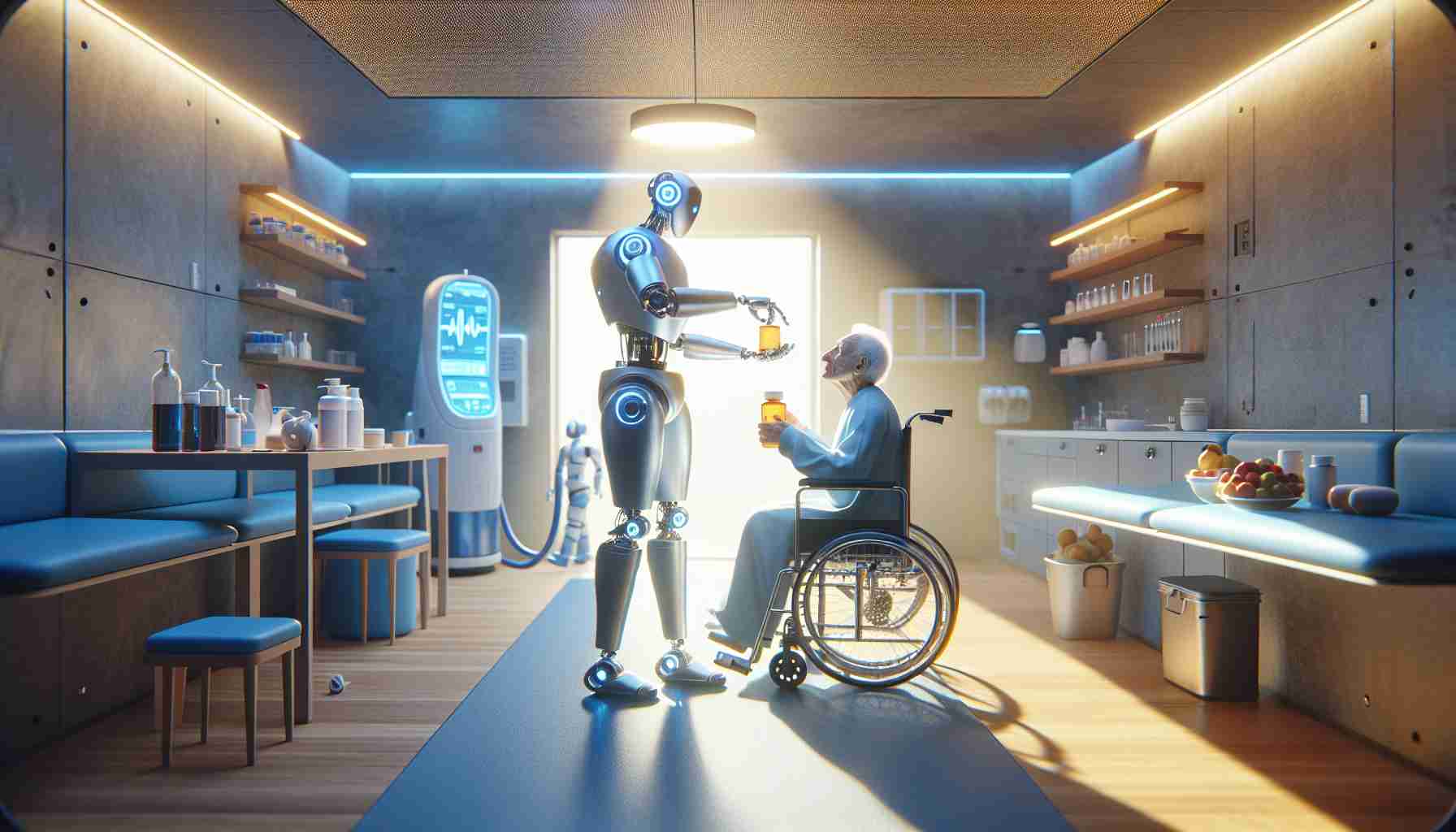The healthcare industry is on the brink of a technological transformation as robotics begin to play a crucial role in patient care. With an aging global population and a growing shortage of healthcare professionals, robotics presents a promising solution to many of the challenges faced by the medical sector.
Innovative Robotics in Patient Care
Robotics companies are identifying significant opportunities in developing healthcare companions that assist both medical staff and patients. These advanced machines go beyond just performing routine tasks—they are evolving into empathetic companions capable of interacting with patients, ensuring their comfort, and offering targeted assistance. This shift is expected to not only increase efficiency but also enhance the quality of care provided to patients.
Meeting Increasing Demands
The demand for healthcare services is rising, especially for elder care, where the need for continuous monitoring and support is crucial. Robotic companions aim to bridge the gap, providing necessary medical supervision and relieving healthcare workers of continuous strain. With intelligent sensors and responsive systems, these robots adapt to various tasks, from daily physiotherapy exercises to complex medication management.
Economic Opportunities in Robotics
Embracing robotics in healthcare not only opens up new markets but also generates significant economic benefits. Companies investing in these technologies can expect to see a considerable return, as both private and public healthcare sectors recognize the potential for reducing long-term costs while improving patient outcomes.
As the industry enters this new phase of innovation, robotics is set to revolutionize the way healthcare is delivered, promising a future where technology and compassion work hand in hand.
Robotics Revolution: A New Era in Human Evolution and Technological Advancement
How Robotics Propel Human Development
The integration of robotics in healthcare is just the beginning of a broader technological revolution that is reshaping humanity’s interaction with machines. Beyond healthcare, robotics is influencing countless other sectors such as agriculture, manufacturing, and even domestic environments. These advancements reflect a significant transition into what some might call a “Robo-centric” era, positing robotics as a transformative force in human development.
A Paradigm Shift in Human-Machine Interaction
One of the fascinating aspects of robotics is the evolution of human-machine interaction. This shift is not merely about machines performing tasks once carried out by humans but involves deepening the emotional and intellectual connections between people and their robotic counterparts. As robots become more sophisticated, capable of understanding and responding to human emotions, a new question arises: Will robots eventually nurture and interact with humans to the point of developing reciprocal relationships?
Controversies Surrounding Robotics in Human Society
Despite the clear benefits, the rise of robotics brings about several controversies and challenges. A significant concern is the potential loss of jobs due to automation, posing questions about the future of both low-skilled and some high-skilled labor. Moreover, ethical debates engulf the development and deployment of empathetic robots—can machines truly deliver empathy, or are they simply simulating emotion based on programming?
Advantages of Robotics Expansion
– Efficiency and Precision: Robots can perform repetitive and precise tasks without fatigue, reducing human error and increasing productivity.
– Economic Growth: The robotics sector is creating new markets and niching opportunities, fostering innovation and potentially new job avenues.
– Life Quality Improvement: By handling onerous tasks, robots free humans to engage in more creative and fulfilling activities.
Disadvantages and Potential Risks
– Job Displacement: Automation might cause unemployment in sectors where robots outperform human labor.
– Security Concerns: The more society integrates robots, the higher the potential vulnerability to hacking and privacy breaches.
– Ethical Dilemmas: The idea of investing emotionally in machines can blur lines between human relationships and artificial interactions.
In-Depth Analysis: Can Robotics Fulfill Roles Beyond Human Capacity?
Robotics extends far beyond basic assistance into possibilities that humans alone could not achieve—addressing tasks too dangerous or complex. One must ask: How will society adapt ethical frameworks to accommodate AI decisions in life-critical areas? Moreover, can we anticipate robots exceeding human cognitive potential, leading us into a future of vastly augmented intellect?
Discover more about the evolving landscape of robotics at Robotics and learn how industries are adapting to these changes by visiting Automation, a leading authority on the integration of automation technologies.
